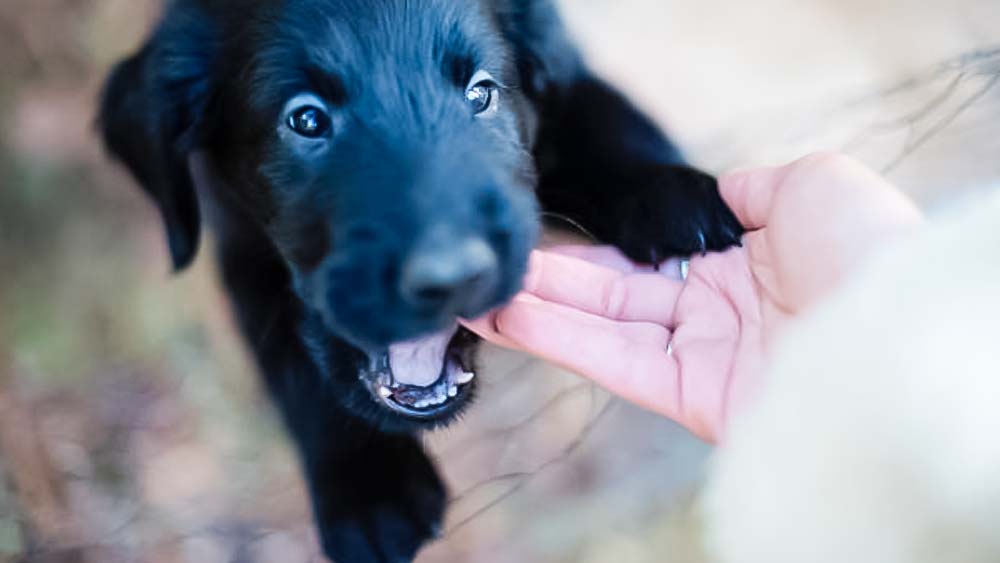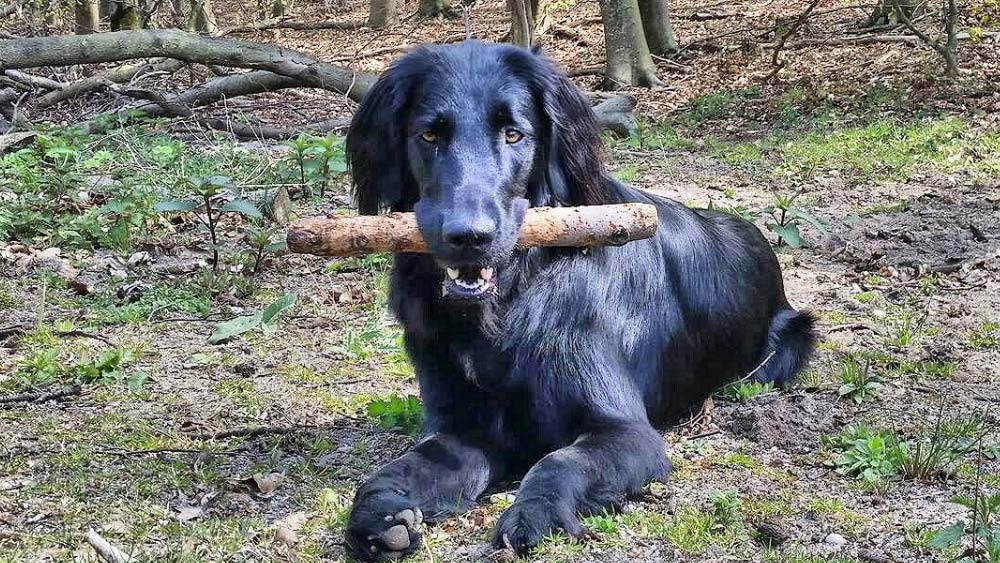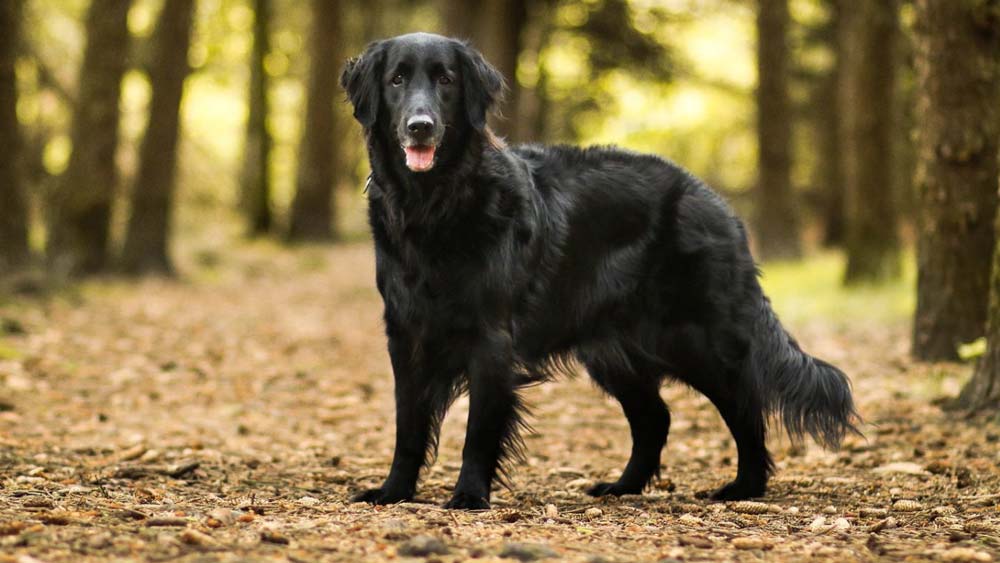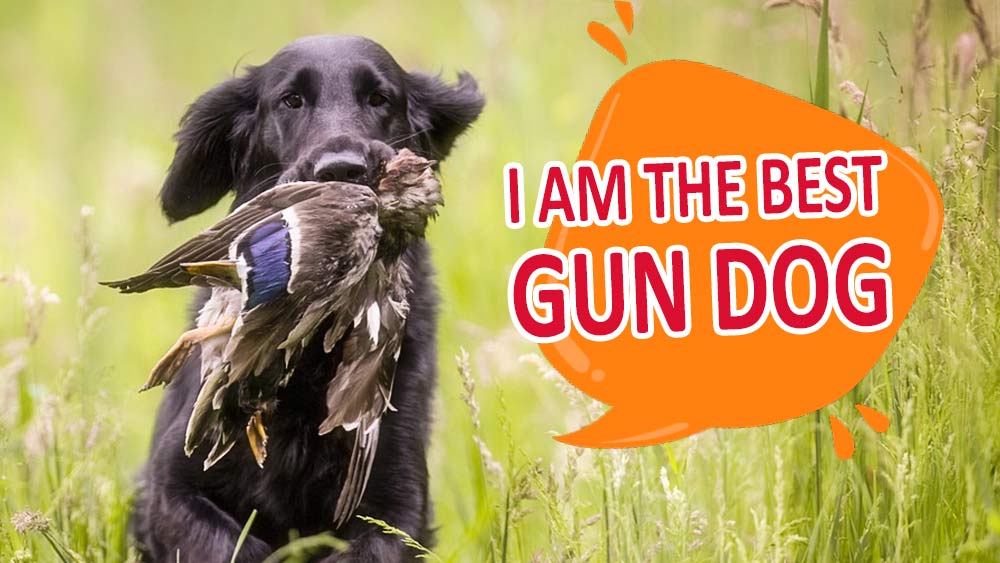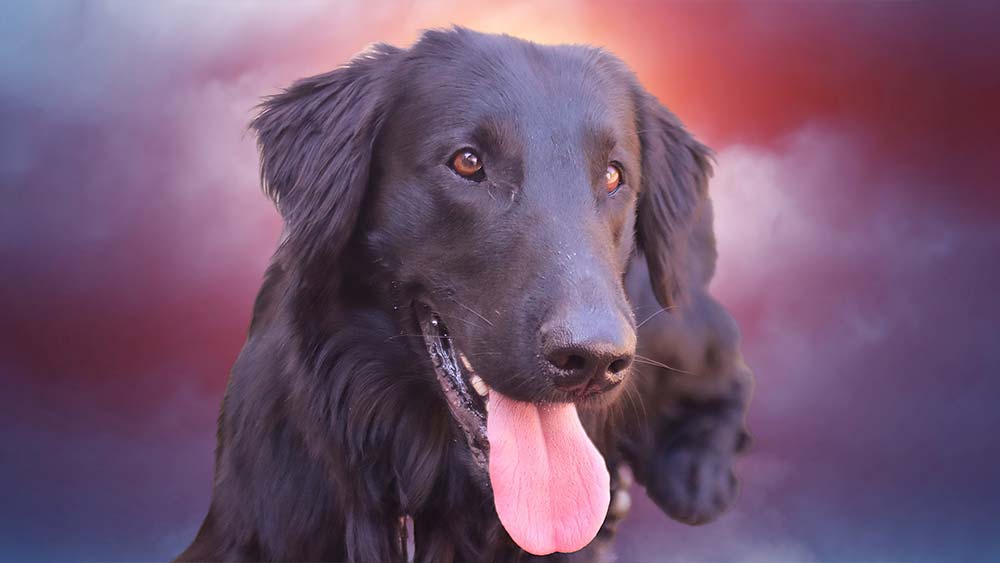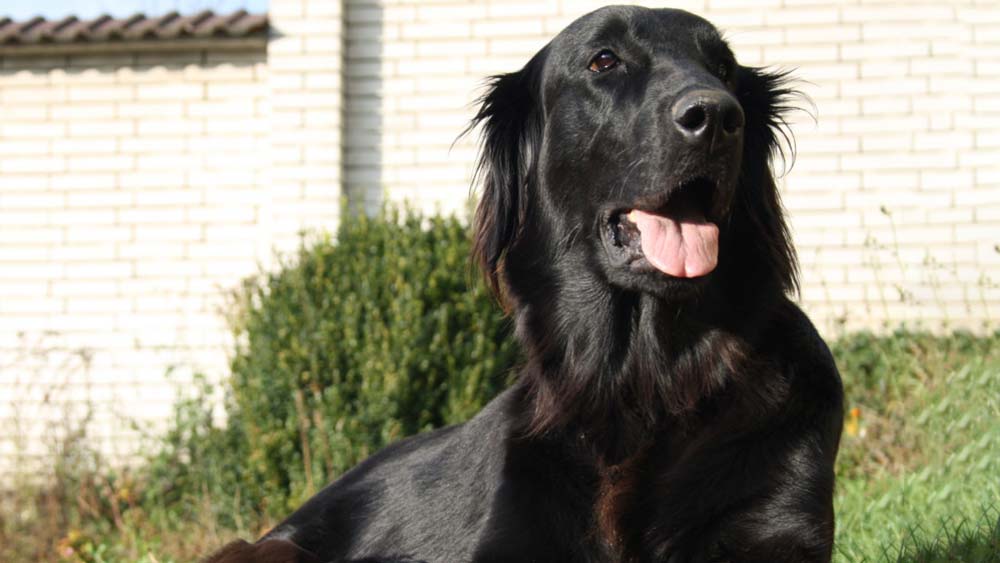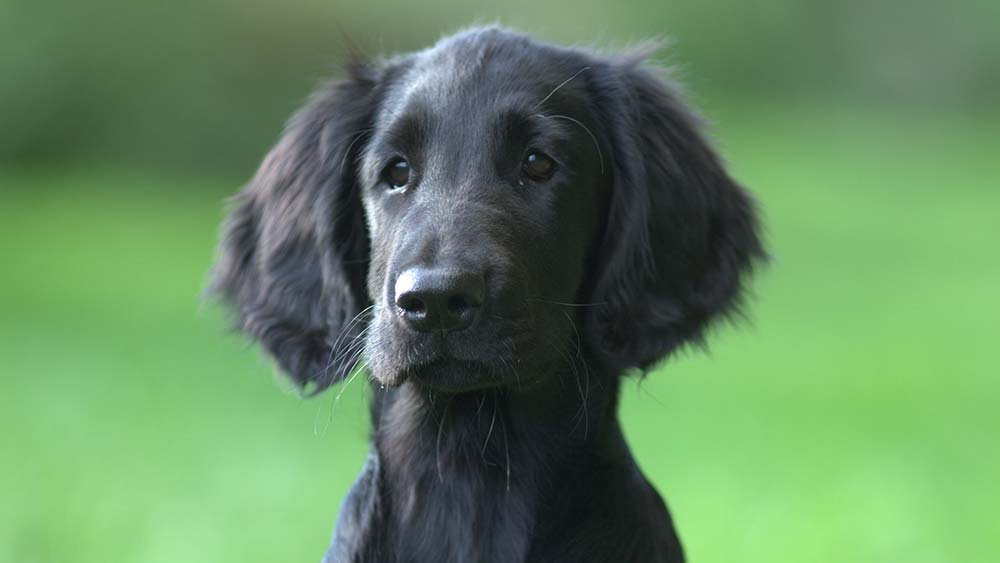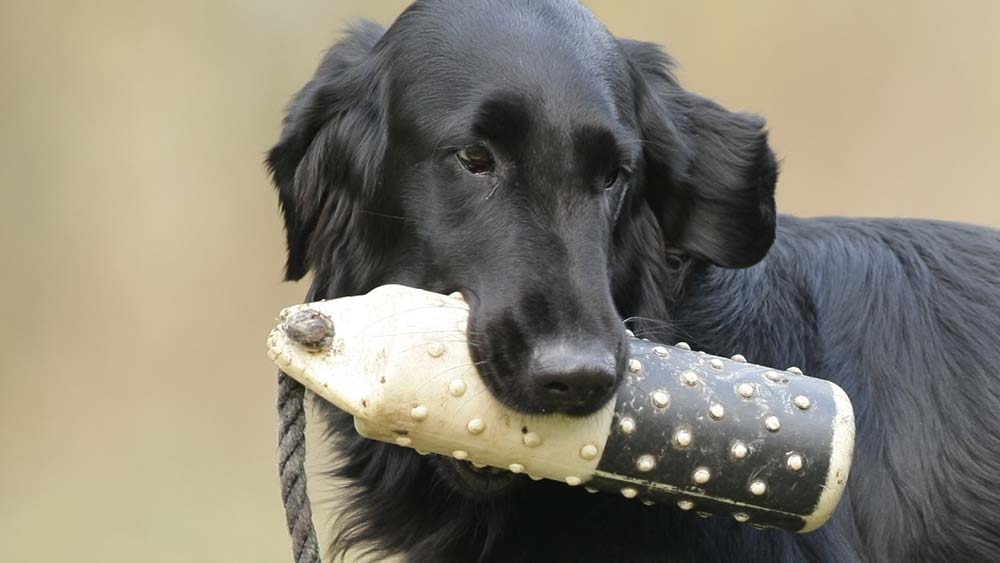Flat-coated retrievers are a popular breed of dog known for their intelligence, energy, and loyalty. Unfortunately, they can also be prone to biting if not properly trained or socialized. If you’re considering getting a Flat-Coated Retriever, it’s important to understand why they may bite and how best to prevent it. In this blog post, we’ll explore why Flat Coats bite and what you can do as an owner to ensure your Flat Coat is well-behaved and happy. We’ll also look at some tips for preventing bites from happening in the first place so that everyone stays safe!
Why Do Flat Coats Bite So Much?
Breed`s Trait
flat coated retrievers were originally bred to be hunting partners, so they have a high prey drive and are naturally inquisitive. This can lead to them biting when encountering something strange, such as a new toy or person. Flat Coats also tend to be very protective of their owners, making them more likely to bite if they feel threatened or think they’re in danger.
Read More: Flat-Coated Retriever Traits & Temperament Explained!
Lack of Proper Socialization
Another issue is that Flat Coats need to be properly socialized to feel comfortable around people and other animals. If they aren’t socialized, they can become fearful or anxious and may lash out by biting. It’s important to start socializing your Flat Coat as soon as possible, so they learn how to interact with others and understand appropriate behaviors.
Read More: 20 Fun Activities You Can Do With Your Flat-coated Retriever
Inadequate Training
Flat Coats need to be trained from an early age in order to learn what is and aren’t acceptable behavior. If they aren’t trained properly, they may not understand the difference between good and bad biting behaviors, which can lead to them biting more often.
Read More: How to Train a Flat Coated Retriever? Step By Step Guide
challenging of dominance
Flat Coats can also be prone to biting if they feel like they’re being challenged for dominance. If you have other pets or children in the house, it’s important to supervise interactions between all of them so that Flat Coats don’t feel like they have to take charge in order to stay safe.
Environment problems
Flat Coats may bite if they’re feeling anxious or scared due to a change in their environment. This could be something like moving to a new home or coming into contact with loud noises. If this is the case, it’s important to ensure that Flat Coats feel safe and secure in their new environment.
Too much alone time
Flat Coats need plenty of exercise and companionship to stay happy and healthy. If they’re left alone for long periods of time, this can lead to boredom which could eventually result in biting out of frustration.
High Prey Drive
Flat Coats have a high prey drive so they may try to chase or bite anything that moves quickly. This could be small animals like cats, birds, squirrels, and humans if they think you’re running away from them. It’s important to keep Flat Coats on leashes outside so they don’t take off after something.
Read More: How To Train A Flat Coated Retriever To Hunt With You?
Underlying Health Issues
Flat Coats may rarely bite if they feel unwell due to an underlying health issue. If your Flat Coat is exhibiting any unusual behaviors, it’s important to take them to the vet right away in order to rule out any potential medical conditions.
Read More: 21 Health Care Tips for Your Flat Coated Retriever
How to Prevent Flat Coat puppies from Developing Biting behavior:
Provide Proper Training
Start training your Flat Coat early on and ensure it’s done positively and consistently. This will help them learn what behaviors are okay and which ones aren’t. Make sure you use reward-based methods such as praise or treats so that they have the incentive to obey commands and stay well-behaved!
Socialize Your Flat Coat Early On
Socializing your Flat Coat puppy is key in preventing aggression toward others. Take them out for walks, introduce them to other animals, and even have playdates with friends and family. This will help your Flat Coat learn how to interact in a safe manner with new people and animals.
Provide Mental Stimulation
Flat Coats are intelligent dogs who need mental stimulation in order to stay happy and healthy. Ensure you provide plenty of puzzles and toys for your Flat Coat puppy to play with so they can use their brain power instead of biting!
Show Consistency
Flat Coats need consistency when it comes to discipline or training. Make sure you correct bad behaviors immediately, so they understand what is unacceptable. Once they know the rules, be consistent in enforcing them, or else your Flat Coat may become confused or rebellious.
Read More: Importance of Consistency with Flat Coated Retrievers
How to stop Flat-Coated Retriever bites while playing?
1. Supervise playtime:
Even if Flat Coats are playing with other people or animals, it’s important to supervise play time to ensure that all involved remain safe and happy.
2. Separate them when necessary:
If Flat Coats become too rough during playtime, separate them immediately and provide a timeout before reintroducing them back into the group.
3. Teach Bite Inhibition:
Flat Coats need to learn how to control their bite force during play so they don’t hurt anyone. Have your Flat Coat practice with soft toys or imitation prey items so they can learn how much pressure is appropriate for different situations.
4. Redirect Biting Behavior:
When Flat Coats start biting or nipping during play, immediately redirect their attention to something else such as a toy or chew item. This will help them understand that biting is not an acceptable behavior.
5. Provide Positive Reinforcement:
Flat Coats thrive on positive reinforcement, so ensure you reward them when they exhibit good behavior. Rewards can be anything from verbal praise to treats and toys.
Is Excessive Biting an early sign of aggression in Flat Coats?
If left unchecked and the dog is constantly anxious then yes. otherwise, most dogs bite out of love or boredom. if Flat Coats are given appropriate mental stimulation, training, and socialization then the chances of them developing aggressive behavior are much lower. Flat Coats need to learn that biting humans or other animals is not okay and should be discouraged from a young age.
How To Channel Biting Behavior into Something Positive?
Flat Coats love to chew on things, so ensure you provide them with plenty of toys and chews that are suitable for their age and size. This will help satisfy their need to chew while also keeping them away from your furniture or other items they shouldn’t be mouthing!
Flat Coats need to learn how to control their bite force when chewing on toys or other objects. Have your Flat Coat practice with soft toys or imitation prey items so they can learn how much pressure is appropriate for different situations.
When Flat Coats start biting at furniture or other inappropriate items, immediately redirect their attention to something else, such as a toy or chew item. This will help them understand that biting is not an acceptable behavior.
Flat Coats thrive on positive reinforcement, so ensure you reward them when they exhibit good behavior. Rewards can be anything from verbal praise to treats and toys.
If all these methods fail, consider taking your Flat Coat for a check-up with the vet in case there’s an underlying medical condition causing the excessive biting behavior.
Conclusion
Flat Coats can be prone to biting, but with the right training and care, this behavior can easily be managed. It’s important for Flat Coat owners to provide consistent discipline and supervision during playtime, as well as teach bite inhibition through positive reinforcement. Providing mental stimulation in the form of puzzles or toys is also helpful in channeling their energy into something productive rather than destructive. If all else fails, consider taking your Flat Coat for a checkup at the vet if you suspect an underlying medical condition might be causing excessive biting behaviors. With patience and dedication, it’s possible to have a happy Flat Coat that loves playing without resorting to unwanted nipping or biting!
Read More: Why Do Flat-Coated Retrievers Like To Dig?
Read More: Do Flat Coated Retrievers Bark? + Tips To Manage IT!
Read More: Can Flat-Coated Retrievers Live in Apartments?
Read More: Are Flat-Coated Retrievers Good For First Time Owners? Q&A

